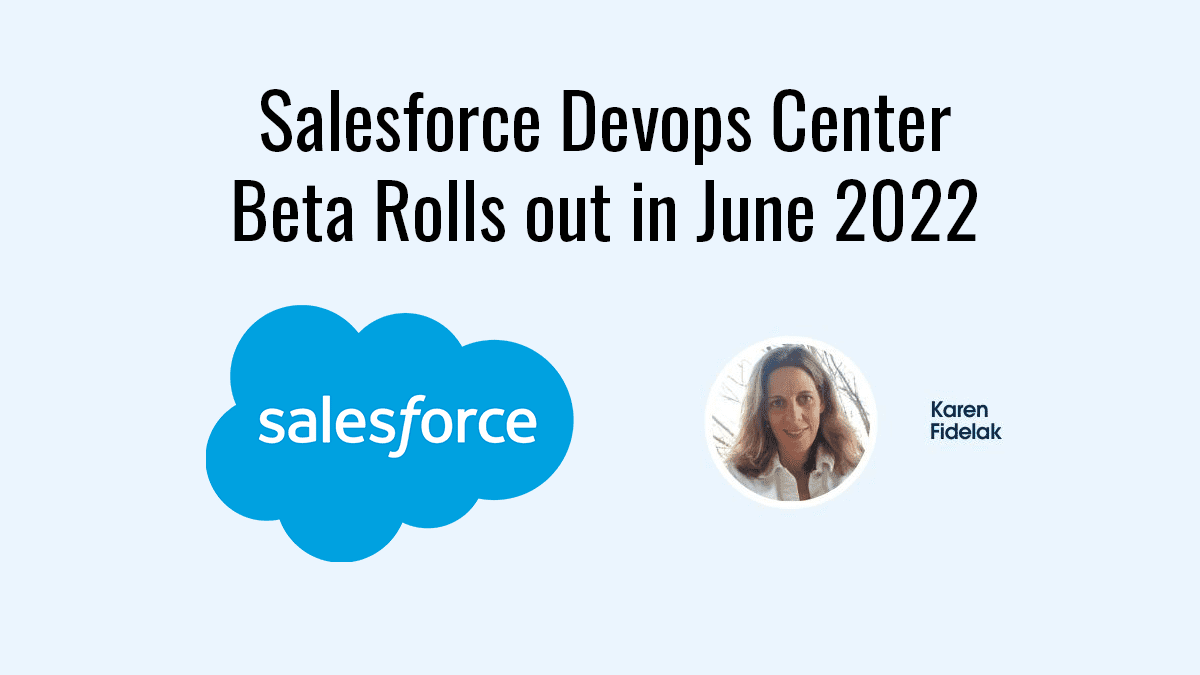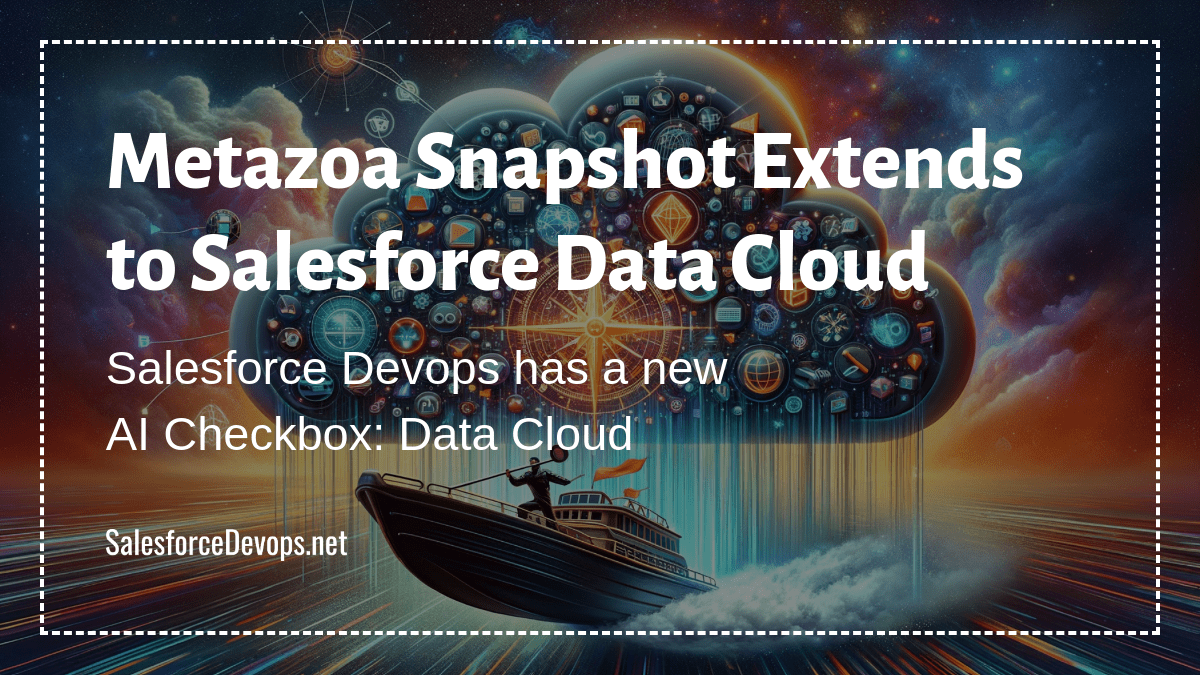Salesforce DevOps Center Public Beta Due in June
A Salesforce product manager recently shared details about the rollout of Salesforce DevOps Center in an exclusive media interview with SalesforceDevops.net. Karen Fidelak, senior director of product management at Salesforce, is excited for the rollout to finally happen. “Beta customers are using it for their day-to-day operations,” said Ms. Fidelak who is pleased with the recently completed limited beta program. “Any customer on Professional Edition and up will be able to sign up for full beta starting in June. We expect to go GA before the end of the year,” added Ms. Fidelak.
What is Salesforce DevOps Center?
“DevOps Center is all about change and release management and introducing devops best practices to our entire community, regardless of where you fall on the low-code to pro-code spectrum,” said Ms. Fidelak in a recent Salesforce podcast. The goal is to make a tool that provides easy-to-use change management, source management, push-button deployments, and, overall, will allow hybrid sets of users to work together more easily.
DevOps Center currently uses GitHub to host repositories that track metadata and source code changes during release activities. The system presents release management flow in a graphical user interface. This helps users to create organized pipelines of release activities.
Salesforce DevOps Center lets Salesforce admins ditch the long-standing practice of using change sets to deploy Salesforce org customizations. For that reason, and to encourage more efficient release management, DevOps Center will be available free of charge.
To help with application lifecycle management (ALM), Salesforce DevOps Center employs a lightweight Work Item object designed to help groups work together. DevOps Center currently does not provide any integration with popular ALM tools like Jira.
TrailblazerDX 2022 Debut
This week’s TrailblazerDX 2022 developer conference is the official coming out party for Salesforce DevOps Center. The product is featured in several main-stage and side-stage presentations, and a dedicated booth is staffed by the product team. After the show, video content should be available for those who could not attend.
Open Architecture for ISV Integrations
DevOps Center works by installing an AppExchange package, which adds several custom objects to a devhub org. One independent software vendor (ISV), Elements.cloud, has developed a custom integration for DevOps Center. The integration uses the Work Item object as a touchpoint between DevOps Center user interface and the advanced ALM features of Elements.cloud.
Ms. Fidelak said that anyone can write integrations for Salesforce DevOps Center, but there is currently no formal developer program. Any ISVs developing new integrations should contact the product team via the Trailblazer Community page for DevOps Center.
Early Version Limitations
There are items on Ms. Fidelak’s to-do list for DevOps Center, and she was happy to share what to expect in 2023 and beyond. Expanding GIT hosting service compatibility tops the list. Bitbucket compatibility should be coming first, with other GIT cloud-based services being requested as well. Privately hosted GIT repositories are being requested by customers too.
Vision for the Future
When asked about the future of DevOps Center there were some interesting answers. Future areas of feature development will focus on system reliability, incident management, and observability. These are all currently underserved needs in the Salesforce ecosystem, so these improvements would be very welcome.
Ms. Fidelak indicated we should eventually see a scripted command server, or CI/CD server, added to DevOps Center. That may allow for integration of advanced devops pipeline steps, such as end-to-end testing or developer cybersecurity tools. It is only after the command server is rolled out should we expect Salesforce to add a usage-based pricing model to DevOps Center.
Market is Ready for Salesforce DevOps Center
Devops tends to be a concern for companies who have multi-million-dollar Salesforce investments. Big Salesforce customers see devops as the way mitigate risks when running a business on Salesforce. They made an investment in Salesforce as critical infrastructure, and they have the most to lose. To implement devops management programs, these companies have been buying Salesforce devops offerings like AutoRABIT, Blue Canvas, Copado, Flosum, Gearset, and Opsera.
Since only ISVs were offering devops solutions, any Salesforce admin who wanted to use a low code tool to do devops needed to invest in a commercial product. That likely ruled out access to low code devops for most Salesforce admins. It is true that Salesforce developers can construct their own scripted command servers with free open-source software, but this option is not available to Salesforce admins trained in Trailblazer communities.
Salesforce DevOps Center targeted at Trailblazers who have no previous experience with devops. It is designed so they can benefit from an upgraded release management experience directly integrated into the Salesforce admin interface. Hopefully it will give Trailblazers a path to learning more about the management aspects of devops and increasing organizational flow.
Salesforce DevOps Center is clearly at a critical point in its long history, and it has a lot of expectations riding on a successful launch and rollout of the public beta. By just adding the word DevOps to the Salesforce Admin menu, the project will cause awareness of devops to skyrocket in the Salesforce community. Now, with Salesforce DevOps Center as a new spark of awareness, the work on Salesforce devops can really begin.






